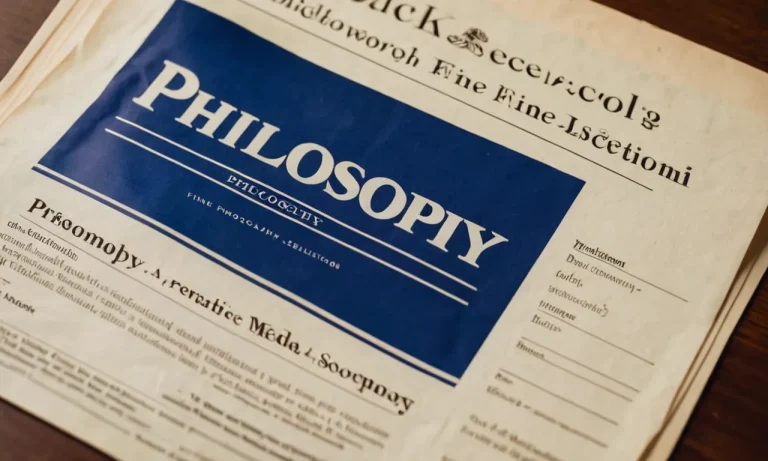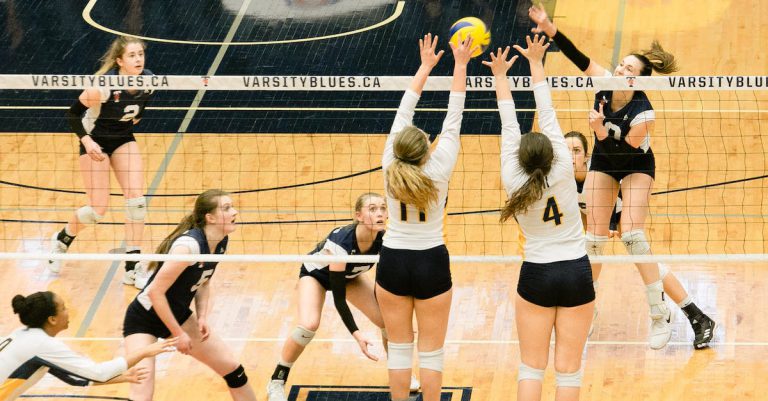In the highly competitive world of college admissions, securing a spot at an Ivy League institution is a dream for many students and their families. However, the path to these prestigious universities is often paved with rigorous academic preparation and strategic planning from an early age.
One of the key factors that can significantly increase a student’s chances of gaining admission to an Ivy League school is attending a feeder school – a high school with a proven track record of sending a substantial number of students to these elite institutions.
If you’re short on time, here’s a quick answer to your question: Feeder schools for Ivy League universities are typically highly selective private or public high schools that have established strong relationships with these top-tier colleges through their academic excellence, rigorous curricula, and successful alumni networks.
Some well-known feeder schools include Phillips Exeter Academy, Stuyvesant High School, and Boston Latin School.
In this comprehensive article, we will delve into the world of feeder schools, exploring their significance, identifying the top feeder schools for Ivy League universities, and providing insights into the admissions process and strategies for increasing your chances of gaining acceptance.
Whether you’re a student, parent, or educator, this guide will equip you with valuable information to navigate the competitive landscape of Ivy League admissions.
Understanding Feeder Schools
What are Feeder Schools?
Feeder schools, also known as “pipeline” or “prep” schools, are secondary educational institutions that have a proven track record of consistently sending a significant number of their graduates to highly selective colleges and universities, particularly the prestigious Ivy League institutions.
These schools are renowned for their rigorous academic programs, exceptional teaching faculty, and a strong emphasis on fostering a college-preparatory environment.
The Significance of Feeder Schools
The significance of feeder schools lies in their ability to provide students with an unparalleled educational experience that equips them with the necessary skills and knowledge to excel in the highly competitive college admissions process.
These schools often boast impressive statistics, such as a high percentage of students scoring in the top percentiles on standardized tests like the SAT and ACT, a substantial number of National Merit Scholars, and a remarkable acceptance rate at elite universities.
Attending a feeder school can be a significant advantage for students aspiring to gain admission to top-tier colleges and universities.
Factors Contributing to a School’s Feeder Status
Several factors contribute to a school’s feeder status, including:
- Academic Excellence: Feeder schools maintain a rigorous and challenging curriculum that prepares students for the academic demands of elite colleges.
- Highly Qualified Faculty: These schools attract and retain exceptional teachers who are dedicated to nurturing students’ intellectual growth and providing personalized guidance.
- College Counseling Services: Feeder schools offer comprehensive college counseling services, assisting students in navigating the complex application process and crafting compelling applications.
- Extracurricular Opportunities: They provide a wide range of extracurricular activities, allowing students to develop leadership skills, explore diverse interests, and showcase their well-rounded profiles.
- Alumni Networks: Many feeder schools have strong alumni networks, which can facilitate connections, mentorship, and valuable insights into the college admissions process.
It’s worth noting that while feeder schools can increase a student’s chances of admission to top colleges, they are not a guarantee. Admissions committees consider a holistic evaluation of each applicant, taking into account various factors such as academic performance, extracurricular activities, essays, and recommendations.
For more information on specific feeder schools and their success rates, you can refer to authoritative websites like CollegeRaptor and PrepScholar.
Top Feeder Schools for Ivy League Universities
Private Feeder Schools
Private schools are often considered the prime feeders for Ivy League universities. These elite institutions pride themselves on rigorous academics, highly selective admission processes, and a track record of sending numerous students to top-tier colleges each year.
Some standout private feeder schools include Phillips Academy Andover, Phillips Exeter Academy, The Lawrenceville School, and The Hotchkiss School. According to Study International, in 2021, Andover sent a whopping 25% of its graduating class to Ivy League schools, while Exeter saw a staggering 29% of its seniors enroll at an Ivy.
These private feeder schools boast impressive resources, small class sizes, and a wealth of advanced courses and extracurricular opportunities to help students stand out in the competitive college admissions process.
However, the hefty price tags (often exceeding $50,000 per year 😱) make these schools inaccessible to many families. But hey, if you’ve got the means, these private feeders could be your golden ticket to an Ivy League education! 👏
Public Feeder Schools
While private schools dominate the feeder school landscape, some exceptional public schools have also earned a reputation for sending a significant number of students to Ivy League universities. Stuyvesant High School in New York City, Walter Payton College Prep in Chicago, and the renowned Boston Latin School are among the top public feeders.
In fact, Niche reports that Boston Latin School sent an impressive 20% of its 2022 graduating class to Ivy League schools!
These elite public schools often have highly competitive admission processes, challenging academic curricula, and a wealth of resources to prepare students for the rigors of an Ivy League education. And the best part?
They’re tuition-free, making them a more accessible option for families who can’t afford the steep price tags of private schools. Don’t underestimate the power of a great public education – it could be your ticket to the Ivy League! 🎓
Regional Feeder School Hotspots
- New England: This region is a hotbed for Ivy League feeder schools, thanks to its proximity to the Ivy League institutions themselves. Top feeders include Phillips Academy Andover (MA), Phillips Exeter Academy (NH), and Boston Latin School (MA).
- New York/New Jersey: With several Ivy League universities in the area, this region boasts numerous top feeders, such as Stuyvesant High School (NYC), Millburn High School (NJ), and Horace Mann School (NYC).
- California: While on the opposite coast, California is home to several elite feeder schools, including Harvard-Westlake School (Los Angeles), Lowell High School (San Francisco), and Gunn High School (Palo Alto).
While these regional hotspots tend to produce a higher concentration of Ivy League-bound students, don’t count out other areas of the country. With hard work, dedication, and a stellar academic record, students from any high school can gain admission to an Ivy League university.
The key is to make the most of the resources and opportunities available to you, wherever you may be! 💪
Admissions Process and Strategies
Understanding the Ivy League Admissions Process
The Ivy League admissions process is notoriously competitive, with acceptance rates hovering around 5-10% for most schools. To gain admission, applicants must demonstrate exceptional academic achievements, impressive extracurricular activities, and a compelling personal narrative.
The process typically involves submitting standardized test scores (SAT or ACT), transcripts, essays, letters of recommendation, and an application fee. According to the Princeton University Admission Statistics, only 3.98% of applicants were admitted to the Class of 2026.
Building a Competitive Application Profile
Building a competitive application profile is crucial for Ivy League admission. Here are some key strategies:
- Maintain an exceptional GPA and take challenging courses to demonstrate academic rigor.
- Achieve top scores on standardized tests (SAT/ACT).
- Participate in meaningful extracurricular activities, leadership roles, and community service.
- Craft compelling and authentic essays that showcase your unique story and personality.
- Seek strong letters of recommendation from teachers or mentors who can attest to your abilities and potential.
Remember, the Ivy League admissions process is holistic, considering not just academic excellence but also personal qualities, intellectual curiosity, and potential for contribution.
Leveraging Feeder School Connections and Alumni Networks
Attending a feeder school, which has a strong track record of sending students to Ivy League institutions, can be advantageous. These schools often have well-established alumni networks and connections with Ivy League admissions offices.
According to IvyCoach, some of the top feeder schools for the Ivy League include Exeter Academy, Andover, and Choate Rosemary Hall. Leveraging these connections can provide valuable insights into the admissions process, access to networking opportunities, and potential recommendations or endorsements from influential alumni.
However, it’s important to note that attending a feeder school alone is not a guarantee of admission; a strong application profile remains paramount.
Additionally, connecting with alumni from Ivy League institutions can be beneficial. Alumni interviews are often a part of the admissions process, and building relationships with alumni can provide valuable mentorship, guidance, and potential recommendations.
Don’t be afraid to reach out to alumni from your desired Ivy League school and inquire about their experiences and advice. 😊 Remember, the Ivy League admissions process is highly competitive, but with strategic planning, dedication, and a well-rounded application profile, your chances of gaining admission can be significantly improved.
Beyond Feeder Schools: Alternative Pathways
Excelling at Non-Feeder Schools
While feeder schools undoubtedly provide a well-trodden path to Ivy League admission, students at non-feeder schools should not feel discouraged. Many exceptional students from lesser-known high schools have gained admission to top-tier universities through sheer determination and academic excellence.
The key is to stand out by maintaining an impressive GPA, scoring highly on standardized tests like the SAT or ACT, and demonstrating a genuine passion for learning. According to Princeton’s admission website, the university seeks “students with exceptional talents and potential for intellectual growth.”
So, even if your school isn’t a traditional feeder, you can still make a compelling case for admission by showcasing your unique abilities and achievements.
Extracurricular Activities and Community Involvement
Ivy League admissions committees don’t just look for academic prowess; they seek well-rounded individuals who have made a positive impact on their communities. Extracurricular activities and community involvement can be powerful differentiators in the application process.
According to the University of Pennsylvania, they value “students who have made a difference in their communities and who have demonstrated leadership and a commitment to service.” Don’t underestimate the power of meaningful extracurricular pursuits, whether it’s starting a club, volunteering for a cause you’re passionate about, or participating in sports or the arts.
These experiences not only showcase your interests and values but also demonstrate your ability to juggle multiple commitments – a crucial skill for success in college and beyond.
Exploring Early Decision and Early Action Options
For students who are certain about their top-choice school, applying through an early decision or early action program can significantly increase their chances of admission. According to Princeton’s admission statistics, the early action acceptance rate for the Class of 2026 was 21.1%, compared to just 3.9% for regular decision applicants.
While early decision plans are binding, meaning you must attend if accepted, early action programs are non-binding, allowing you to compare financial aid offers from multiple schools. It’s worth noting that Yale’s early action program is particularly advantageous, as they admit a higher percentage of students through this route.
However, early application deadlines typically fall in November, so you’ll need to start preparing well in advance.
While the Ivy League admissions process is undoubtedly competitive, there are numerous alternative pathways to success. By excelling academically, engaging in meaningful extracurricular activities, and strategically considering early application options, students from all backgrounds can increase their chances of gaining admission to their dream school.
Remember, the admissions process is holistic, and your unique story, passions, and accomplishments can set you apart – even if you didn’t attend a traditional feeder school. 😊
Conclusion
Attending a feeder school can undoubtedly provide a significant advantage in the highly competitive Ivy League admissions process. However, it is important to recognize that gaining admission to these prestigious institutions is a multifaceted endeavor that extends beyond the reputation of one’s high school.
Ultimately, a well-rounded application profile, exceptional academic performance, and a genuine passion for learning and personal growth are essential components that admissions committees seek in prospective students.
While feeder schools offer valuable resources and connections, students should not lose sight of their individual strengths, talents, and aspirations. By embracing a holistic approach to their academic and extracurricular pursuits, students can increase their chances of standing out in the admissions process, regardless of their high school’s feeder status.
As you navigate the journey towards Ivy League admission, remember to stay focused, resilient, and true to your authentic self. With dedication, hard work, and a strategic approach, the doors to these esteemed institutions can open, paving the way for a transformative educational experience and a lifetime of opportunities.






